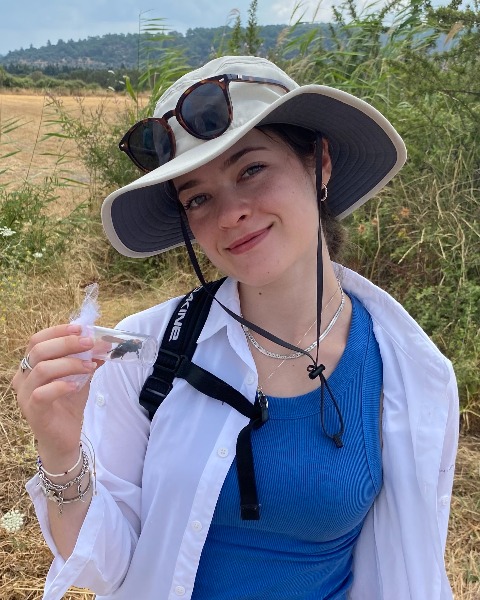Student Poster Display
Plant-Insect Ecosystems
Student
Student Competition
D3194: Impact of flower temperature fluctuation on pollinator visitation and behavior

Avery Beaune Roe
Undergraduate Researcher
University of Florida
San Francisco, California- VG
Víctor Hugo González (he/him/his)
Undergraduate Biology Program And Department of Ecology And Evolutionary Biology,
University of Kansas
Lawewnce, Kansas
Presenting Author(s)
Co-Author(s)
Global climate change has already resulted in long-term shifts in temperature and weather patterns, with semi-arid regions particularly vulnerable to continued increases in temperature. Temperature-driven phenological and resource mismatches between plants and their pollinators threaten global biodiversity and impact the invaluable ecosystem service of pollination. Several factors influence pollinator guild dynamics, including season, time of day, temperature, and humidity. Previous studies have demonstrated bees shift their floral preferences based on ambient temperature and plant temperature modulation, suggesting a mechanism for plant-pollinator relationships to adapt to temperature shifts. We hypothesize that abiotic factors, particularly temperature, impact the foraging behavior and diversity of pollinator visitors directly, while also contributing to indirect effects via nectar volume. This project aims to detangle the interactions between time, temperature, and nectar volume on the foraging patterns of managed and wild bees visiting Vitex agnus-castus in Lesvos, Greece. We established a 16-plan transect, surveying 1) bagged and open inflorescence nectar volume, 2) ambient, flower, and plant temperatures, and 3) pollinator visitation in two-hour intervals from dawn to dusk. We found that nectar volume, modulated by ambient temperature, shapes the pollinator assemblage visiting V. agnus-castus, suggesting the possibility of temperature niches within the system. These findings highlight the interacting effects of climatic conditions on community interactions and contribute to the knowledge base of pollinator behavior, including that of endemic and threatened species, ultimately informing conservation efforts in the Mediterranean basin and other semi-arid regions.

.png)

